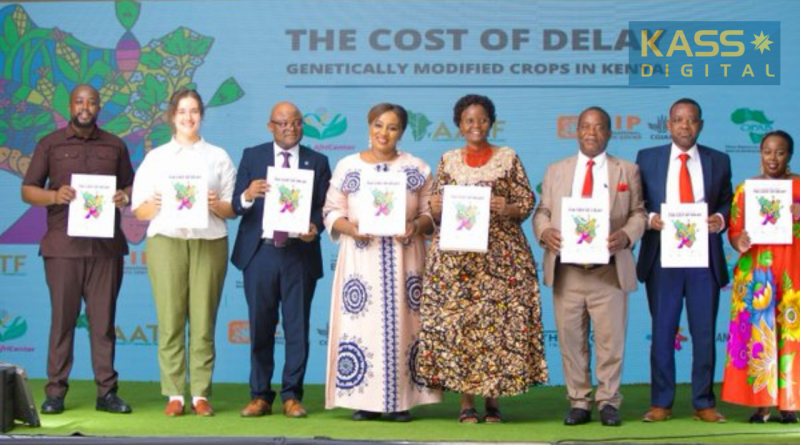Kenya loses KSh 20.4bn over delays in adopting advanced crops — study
By Chemtai Kirui || Kass Digital
Kenya has lost an estimated KSh 20.4 billion over the past five years due to delays in adopting advanced maize, cotton, and potato varieties, a new study has revealed.
The report, The Cost of Delay, produced by a coalition of agricultural and science organisations including the Breakthrough Institute, the African Agricultural Technology Foundation (AATF), the Alliance for Science, and the International Potato Center (CIP), warns that the slow pace of approvals has deprived farmers of higher yields, better incomes, and lower production costs.
The study released Wednesday projects that timely adoption of these crops could inject up to KSh 60.7 billion into the economy over the next three decades through improved productivity, reduced pesticide use, and lower food prices.
Lead author Dr. Willy Daniel Kyalo, Senior Manager for Policy, Agribusiness & Commercialization at the AATF and interim MD of Agridrive Ltd, said advanced crop varieties developed by African scientists are already proven safe and could help protect forests and biodiversity by reducing the need for new farmland.
“By increasing yields, these crops also cut greenhouse gas emissions that fuel global climate change,” he said.
The report estimates that five years of delay in approving three key varieties—Bt maize, Bt cotton, and late blight–resistant potato—has cost the country KSh 8.7 billion in maize losses alone, equivalent to about a quarter of 2022 maize imports.
The Bt gene, derived from a common soil bacterium (Bacillus thuringiensis), is said by researchers to enable plants to naturally repel destructive insect pests without external pesticide sprays.
Scientists in Kenya developed the Bt maize locally through a public–private partnership supported by AATF. The maize varieties are engineered to resist pests such as stem borer and fall armyworm, while the potato variety is designed to withstand late blight disease that can wipe out entire harvests.
AATF’s Open Forum on Agricultural Biotechnology manager Vitumbiko Chinoko said the research quantifies the economic price of delay.
“Global evidence shows that advanced crop varieties with superior pest and disease resistance can significantly boost yields and incomes,” he said.
The findings come as the country awaits regulatory approval for Bt maize, even as the Court of Appeal maintains a moratorium on the trade and cultivation of genetically engineered products pending a legal challenge.
The ongoing legal case stems from the government’s 2022 decision to lift a decade-long ban on genetically modified crops, which was later challenged by farmers’ and consumer groups citing biosafety and public participation concerns.
The advanced potato on the other hand is undergoing final field trials, while Bt cotton was approved in 2020.
Analysts say the report could reignite debate over how Kenya balances innovation, regulation, and public perception in advancing agricultural biotechnology.




